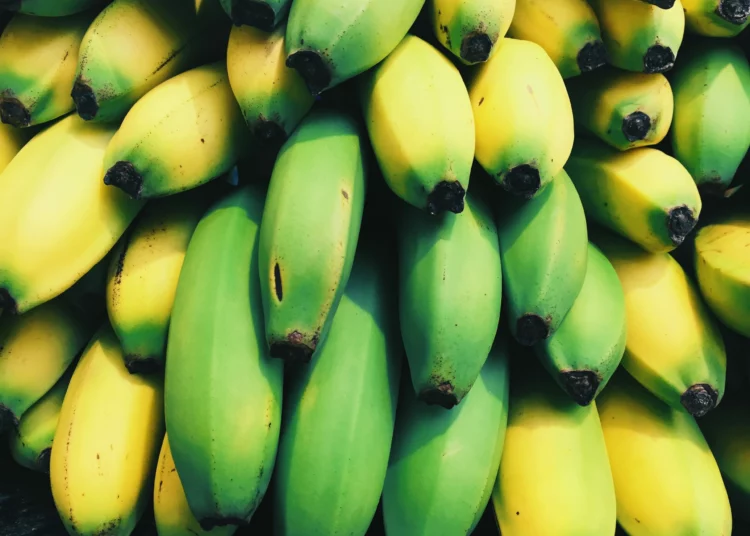Artificial ripening is the process by which ripening is controlled through the use of ripening agents. It is done to achieve faster and more uniform ripening.
This practice is common among fruits sellers, with the aim of making quick profit.
Sadly, many of these fruit sellers are ignorant of the health implications of artificial ripening of fruits and vegetables especially with calcium carbide.
Explaining this, the head of pharmacy, National Hospital Abuja, Pharm Jelili Kilanli, has said that calcium carbide, which is commonly used by fruit sellers to ripen fruits is extremely hazardous to the human body as it contains traces of arsenic and phosphorus.
“Although it is banned in many countries of the world, it is still being used indiscriminately. Thus, we are at a greater risk of short-term as well as long-term health effects simply by eating fruits that are artificially ripened.
“Fruits are an essential component of our food. They are assumed to protect us from diseases and increase our immunity. Most of the times, we eat fruits when they get ripened. Ripening is a natural physiological process that makes the fruit sweeter, more palatable, edible, nutritious, softer and attractive.”
Kilanli, explained that artificial ripening is the process by which ripening is controlled and product may be obtained as required by controlling different parameters. It is done to achieve faster and more uniform ripening.
Speaking further, he said generally, 80 per cent of fruits are ripened artificially through the use of ripening agents. The cosmetic quality of artificially ripened fruits will increase but organoleptic qualities (taste, colour and smell), nutrition value and shelf life are depreciated when fruits are subjected to treatment without considering maturity status.
According to him, Ethylene (ethene) is the major ripening agent produced naturally within the fruits which initiates the process of ripening. Many ripening agents are used to release ethylene in order to speed up the ripening process. Chemicals like ethanol, methanol, ethylene glycol, ethephon and calcium carbide are used to ripen fruits and vegetables artificially.
‘More raw or less mature fruits require higher CaC2 to get ripened. Carbide ripened fruitsproduce uniform skin color. Actually CaC2 only changes the skin color and the fruit remains raw inside. Carbide contains traces of arsenic and phosphorous hydride which are carcinogenic agents. Because of cheap availability of CaC2 in local markets, it is used illegally to enhance fruit ripening.
“Early symptoms of arsenic or phosphorous poisoning include vomiting, diarrhoea with or without blood, burning sensation of chest and abdomen, thirst, weakness, difficulty in swallowing, irritation or burning in the eyes and skin, permanent eye damage, ulcers on skin, sore throat, cough and shortness of breath. Higher exposure may cause a build-up of fluid in the lungs.





